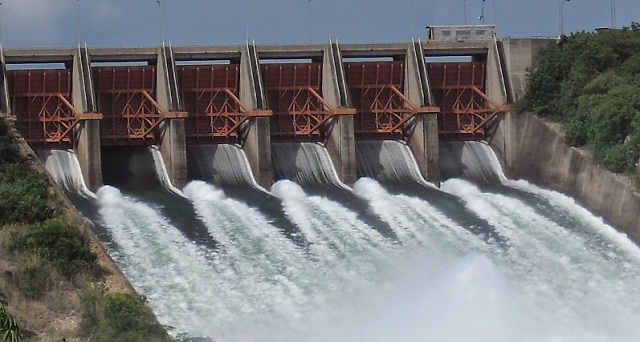
Nairobi, Kenya | AFP | Tanzania on Wednesday awarded a $3-billion (2.64-billion-euro) contract to two Egyptian firms to build a hydro-electric dam in a renowned nature reserve.
The 2,100-megawatt scheme will straddle the Rufiji River in the Selous Game Reserve, a 50,000-square-kilometre (19,000-square-mile) protected area which was designated a UNESCO World Heritage Site in 1982.
Arab Contractors and El Sewedy Electric, which won the tender for building the dam, signed the deal on Wednesday in Dar es Salaam with Tanzanian President John Magufuli and Egyptian Prime Minister Mustafa Madbuli in attendance.
In a televised speech, Magufuli dismissed fears about the scheme’s impact on the environment.
“We are determined to strengthen the development of our economy. We need reliable, sufficient energy. We will not retreat,” he said.
The dam would not only meet national electricity needs, it would also provide surplus power to export to neighbouring countries, he maintained.
Tanzanian Energy Minister Medard Kalemani said there was a three-year deadline for building the dam.
The scheme was first mooted more than half a century ago, but only revived after Magufuli was elected in late 2015. He has declared it to be a key goal of his presidency.
But conservationists are deeply worried about the impact on biodiversity, especially that caused by a giant reservoir that will be created when the river is dammed.
UNESCO has repeatedly called for the scheme to be scrapped, saying it is “incompatible” with the site’s World Heritage status, which it earned for being one of the largest remaining wildernesses in Africa.
The immense park is a haven for elephants, black rhinoceroses, cheetahs, giraffes, hippopotamuses and crocodiles.
In 2014, elephant poaching caused UNESCO to place the reserve on its list of World Heritage in Danger. Mining and lack of funding are other major problems.
 The Independent Uganda: You get the Truth we Pay the Price
The Independent Uganda: You get the Truth we Pay the Price



